This is part 12 of the Read the Bible For Yourself.
Acts is an action-packed book full of excitement and wonder. We learn about the early expansion of the Church from a small group of ragged Christ-followers to dozens of house churches throughout major cities in the Mediterranean world. How did Christianity “go public”? The book of Acts tells that story. In this episode you’ll learn four major emphases in Acts as well as how to think through application for us today.
Listen to this episode on Spotify or Apple Podcasts
—— Links ——
- For more about Family Camp visit LHIM
- Check out the UCA conferences for USA, UK, and NZ here
- See other episodes in Read the Bible For Yourself
- Other classes are available here, including How We Got the Bible, which explores the manuscript transmission and translation of the Bible
- Get the transcript of this episode
- Support Restitutio by donating here
- Join our Restitutio Facebook Group and follow Sean Finnegan on Twitter @RestitutioSF
- Leave a voice message via SpeakPipe with questions or comments and we may play them out on the air
- Intro music: Good Vibes by MBB Attribution-ShareAlike 3.0 Unported (CC BY-SA 3.0) Free Download / Stream: Music promoted by Audio Library.
- Who is Sean Finnegan? Read his bio here
—— Notes ——
Luke wrote Acts.
- Acts 1:1-2
- Acts is the second volume.
- Luke is about the life of Christ.
- Acts is about the early expansion of the church.
Major events of Acts
- 1:1-11 Jesus commissions and ascends.
- 1:12-27 Peter initiates replacing Judas.
- 2:1-47 Spirit is poured out, and Peter preaches.
- 3:1-26 Peter heals lame man and preaches.
- 4:1-6:7 Communal living in Jerusalem
- 6:8-7:60 Stephen’s martyrdom
- 8:1-40 Philip’s expansion to Samaria, Ethiopia
- 9:1-31 Paul’s conversion, expansion to Damascus
- 9:32-9:43 Peter’s mission to Lydda and Joppa
- 10:1-11:18 Peter converts Cornelius in Caesarea.
- 11:19-30 Barnabas brings Paul to Antioch.
- 12:1-24 Peter’s arrest and miraculous escape
- 12:25-16:5 Paul’s 1st missionary journey
- 16:6-19:20 Paul’s 2nd missionary journey
- 19:21-21:17 Paul’s 3rd missionary journey
- 21:18-28:31 Paul’s arrest and trip to Rome
Organization of the book
- The first half is about Peter (1-12).
- The second half is about Paul (13-28).
- Acts 1:8 outlines the book: they expanded from Jerusalem to Judea to Samaria to the ends of the earth.
Leading and experience of God’s spirit
- Baptized with the spirit, filled with the spirit, pour out the spirit, receive the spirit, spirit fell upon: 1:5, 8; 2:4, 17; 4:31; 8:17; 9:17; 10:44-45; 11:15-16; 13:52
- Speaking in tongues; prophecy: 2:4, 17-18; 10:46; 11:28; 19:6; 20:22-23; 27:21-22
- Exorcisms: 5:16; 8:7; 16:18; 19:12-16
- Healing and miracles: 3:6-7; 5:12, 15-16; 8:39; 9:17-18, 34-35; 12:7-10; 13:11; 14:10; 19:11; 20:9-10; 28:3-6, 8-9
- Supernatural direction: 1:16, 26; 8:26, 29; 9:10-16; 13:2; 15:28; 16:7; 18:9-10; 20:28; 21:11; 23:11; 27:23-24
Rapid expansion through conversion
- Convert 3,000 on day of Pentecost (2:41)
- 5,000 after healing lame man at the temple (4:4)
- Conversions of whole towns: Samaria (8), Lydda, and Joppa (9)
- Conversions of key people: Ethiopian treasurer (8); Paul of Tarsus (9); Cornelius the centurion (10); Sergius Paulus, proconsul of Cyprus, (13); Lydia, a wealthy Philippian merchant, (16); Crispus, a synagogue leader in Corinth, (18); Publius of Malta (28)
Perseverance through persecution
- Sadducees arrest Peter and John (4).
- Sadducees arrest apostles (5).
- A mob stones Stephen (7).
- Paul leads persecution in Jerusalem (8).
- King Herod executes James (12).
- King Herod imprisons Peter (12).
- Jewish leaders expel Paul and Barnabas from Pisidian Antioch (13).
- Jewish leaders stone Paul at Lystra (14).
- City magistrates arrest Paul and Silas at Philippi (16).
- Jewish mob attacks Jason at Thessalonica (17).
- Jewish leaders accuse Paul before Proconsul Gallio at Corinth (18).
- Demetrius instigates riot against Paul at Ephesus (19).
- Jewish mob attacks Paul at Jerusalem (21).
- Plot of Jewish leaders to murder Paul (23)
- Paul’s trial before Felix (24)
- Paul’s trial before Festus (25)
- Paul’s defense before King Agrippa (26)
- Paul’s shipwreck (27)
- Paul’s house arrest at Rome (28)
Respectful of Roman authorities
- Paul is respectful to his arresting officer, Claudius, (21:33, 37-40).
- He asserts his Roman citizenship (22:24-29).
- He cordially converses with Felix, Roman governor of Judea, (24).
- Paul appeals to have a trial before Caesar in Rome b/c he’s afraid he won’t get a fair hearing in Judea.
- Paul interacts respectfully with Festus and King Agrippa.
- King Agrippa says Paul should’ve been set free (26:31-32).
- Paul complies on the whole journey while under arrest.
Including the Gentiles
- Originally, Christianity was 100% Jewish.
- Gentiles (non-Jews) began believing in Jesus, and God demonstrated his acceptance through his spirit (see Acts 10:44-45).
- Both Peter and Paul preached to Gentiles and accepted them as part of God’s family.
- After a disagreement broke out over the Gentiles (Acts 15:1-2), the disciples decided Gentiles could be part of the church without keeping the law.
Acts is the historical spine of the NT
- Acts tells you about how Christianity came to many places mentioned in other parts of the NT.
- On Paul’s second missionary journey, he visited Galatia, Philippi, Thessalonica, Corinth, and Ephesus. These are all places to which he wrote Epistles.
Prescriptive vs. descriptive
- Does Acts prescribe how we should live or describe what they did?
- Acts 2:44-46 talks about sharing all our possessions. Is this normative for all Christians for all time?
- Fee & Stuart: “Unless Scripture explicitly tells us we must do something, what is only narrated or described does not function in a normative (i.e. obligatory) way—unless it can be demonstrated on other grounds that the author intended it to function in this way.”[1]
Review
- Acts is a history of the church that Luke wrote to follow his biography of Christ.
- Acts describes the spread of Christianity from Jerusalem to Judea to Samaria to the ends of the earth (i.e. the Mediterranean world).
- In Acts, Luke is interested in the activity of God’s spirit, missionary activity resulting in conversions, and how Christians are respectful to Roman authorities.
- The inclusion of Gentiles into the early Christian movement caused a significant controversy, resulting in the decision that they did not need to keep the law.
- Acts provides the historical backbone into which fit many of the Epistles of the NT.
- Luke tells of Paul’s three missionary journeys, as well as his final treacherous journey to Rome under arrest.
- Although Acts shows us what is possible as we walk with God, it does not prescribe that Christians today must do everything the way they did it (descriptive not prescriptive).
[1] Gordon D. Fee and Douglas Stuart, How to Read the Bible for All Its Worth (Grand Rapids, MI: Zondervan, 2014), 124.

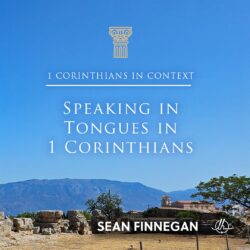
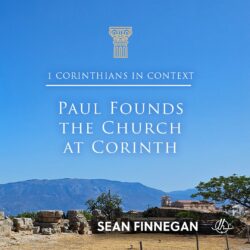
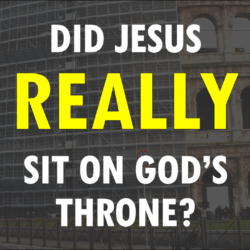

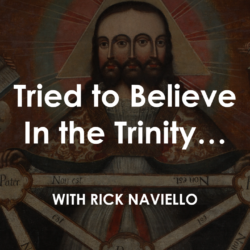
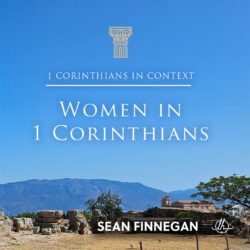
Still sounding preterist-like. Acts is interesting–because much of what Jesus predicted in Matthew 24/Luke 21 is apparent in Acts. Tons of persecution from Jews, famines, wars, brought before rulers and leaders, hated by all, false prophets, signs in heavens… all in Acts. This was just the beginning of sorrows Jesus told them though. 40 years later(roughly) Luke 21 says Jerusalem will be surrounded, destroyed, and the Kingdom of God came into the world as heaven/earth passed away.
I like how you handled the prescription and description too. I had a lot of really hard times understanding some of that “commune” like things that occurred in Acts and some of Paul’s letters long ago. I see it fitting more now the coming judgment of their time if they knew Jerusalem was to be destroyed. Possessions wouldn’t mean much at all to them if you believed Jesus’ prophecy about that Temple destruction and Jerusalem being leveled in the near future. But to take that and purport that communistic style belief and make all Christians do it from Acts to today would likely not work. It wouldn’t make much sense to give up everything just so you could then be dependent on others.